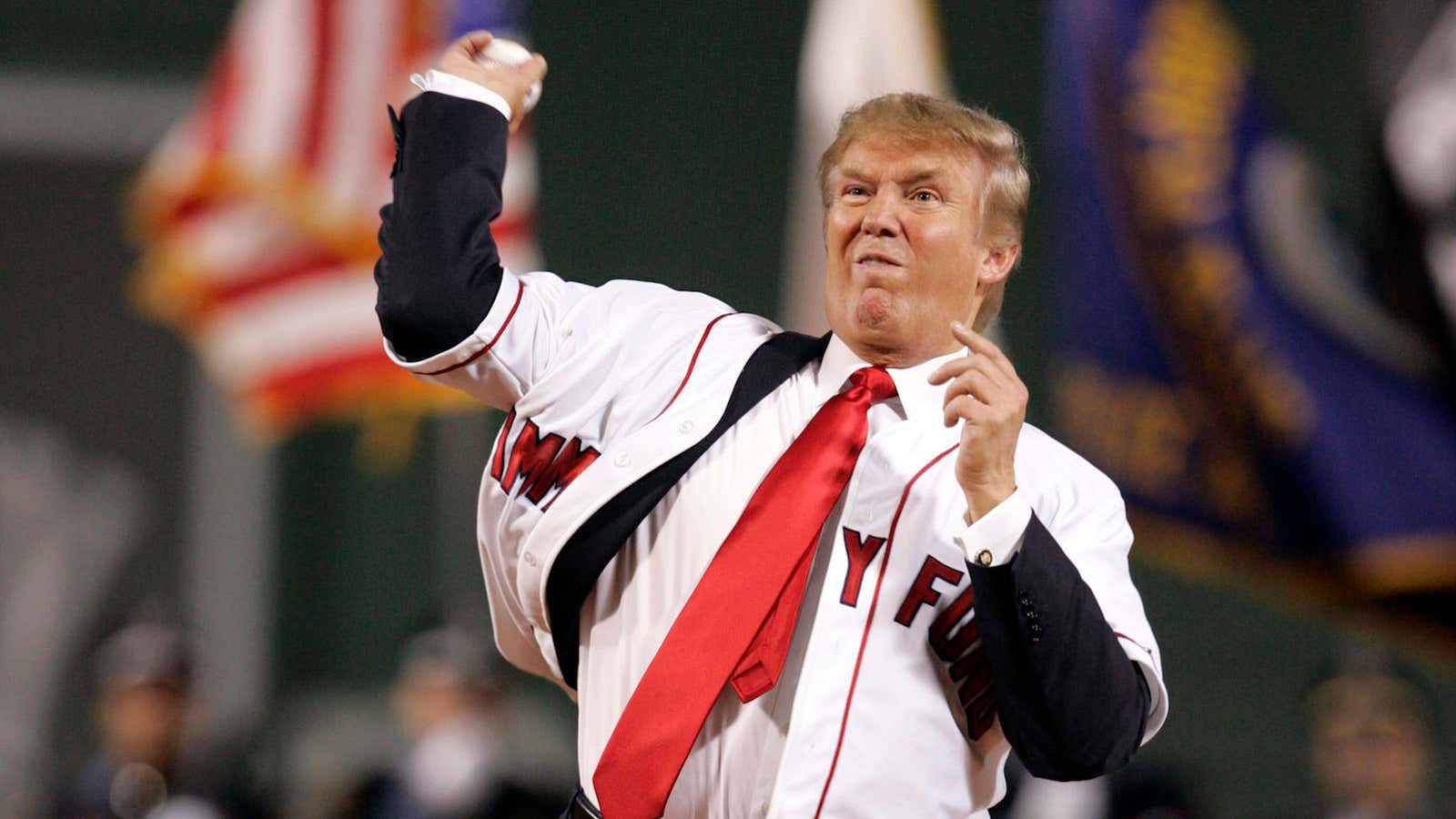After a 2005 tape recording of Donald Trump bragging about sexually assaulting women resurfaced last week, the GOP presidential candidate attempted to use an old sports metaphor to excuse his actions. “It’s locker-room talk, and it’s one of those things,” Trump said at the second presidential debate on Oct. 9.
Trump mentioned the words “locker room” five times during the debate, implying that his comments about grabbing women “by the pussy” were just casual banter, meant to impress the lads after a game (or, in this case, Access Hollywood co-anchor Billy Bush). He also took to Twitter to offer a tepid apology using the same verbiage.
But locker-room talk isn’t just an old sports phrase—it’s unfortunately still a very real phenomena.
Back in 1991, sports researcher Timothy Curry found that when male athletes talked about women as persons rather than objects, they were ridiculed by their teammates in the form of male posturing, joking, and put-downs. Therefore, to avoid this, “the athlete may choose to present his attitude toward women in a different way, one that enhances his identity as a ‘real man.’ The resulting women-as-objects stories are told with braggadocio or in a teasing manner.”
Twenty-five years after this study was published, Trump has brought ”braggadocious” language out of America’s locker rooms and back into the spotlight. It is no better an excuse for belittling sexual assault in 2016 as it was back in 1991.
Recently my colleagues Dr. Tommy Shavers, Dr. Marni Finkelstein, and I published two papers (here and here) that explored the perceived influence that status and social power have on the sexual behavior of male football players at Baylor, a major collegiate university. Baylor University, and most notably their football program, is one of the more prominent athletic programs of late to be under scrutiny for how they educate, deter, monitor, and react to inappropriate sexual behavior. Investigations into sexual assaults allegedly committed by football team members have so far led to the dismissal of their head football coach and the eventual removal/retirement of their athletic director and president.
Our findings suggested that some college athletes are incredibly confident in their ability to conquer (have sex with) women, and indeed view sex as a form of payment for women who associate themselves with them. These athletes perceived themselves to be invincible, superior to their peers, and entitled to whatever and whoever they wanted. Consider a few of these quotes, culled from among the many included in our research:
“We do because we can; because it’s there and we don’t have to try for it… It’s too easy! We can even share a girl (sexually) if we wanted to and that can work.”
“… Even if you one night stand these girls, they don’t care. They’re so thrilled with the fact that they got to hook up with you, it doesn’t matter to them that you don’t talk to them anymore (afterwards).”
“If one isn’t treating you right, you just get rid of her. You don’t keep her around. This becomes their motivation; that you’ll get rid of them if they don’t act right or treat you right.”
The athletes in our study used women for sex, and they also believed women considered sex with them personally beneficial. For example, some athletes believed women wanted to sleep with them because it would give them extra status, and potentially, future financial security: “It’s the cool thing to do, to have slept with a football player,” one participant said. “It’s fun to them—it makes them feel better about themselves.”
Using these comments as a lens through which to analyze current events, it seems Trump’s language—while extreme—is not out of line with what is being said in college locker rooms around the US. And while such graphic talk may not occur in all locker rooms, our study suggests that those with status and power, whether athletes or celebrities, perceive sexual benefits from their status.
In a promising sign, however, Trump’s actions have incensed many professional athletes, who have taken to social media to deny that such conversations occur in their own locker rooms.
By labeling his comments as locker-room banter, Trump implied that all athletes feel, say, and do the same—which they do not. Still, even a few is too many. I’ll leave the final word to Los Angeles Clippers forward Blake Griffin:
